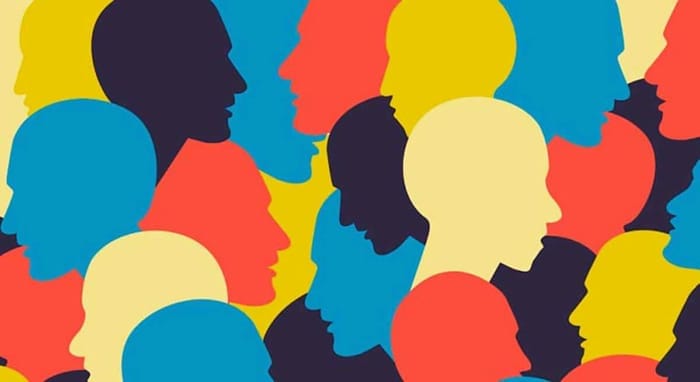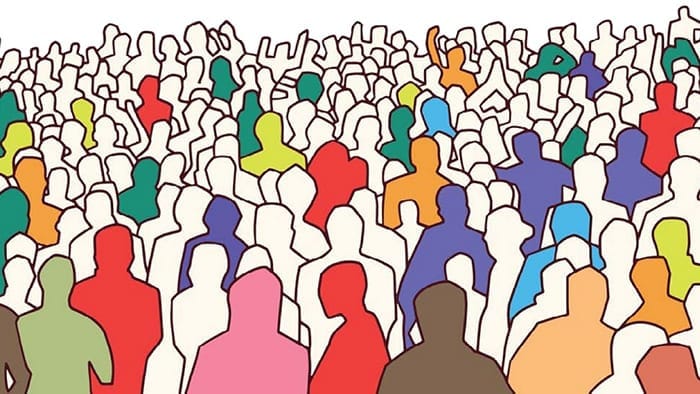
Blog
Social psychology

Human beings, as social creatures, always find meaning in groups; human actions, behaviors, expressions, and feelings have no meaning in isolation. In fact, the influence of society and others on a person causes human deeds and behaviors to emerge in various situations, and it is society that makes all these elements meaningful and understandable. Social psychology, as a subfield of psychology and sociology, studies humans in society and analyzes their behavior.
Social psychology differs from sociology because the foundations studied in each discipline are fundamentally different. Social psychology focuses on the behavior and actions of the individual within the group, whereas sociology examines the behavior and interactions of social groups.
However, these two disciplines complement each other and can provide significant contributions to one another. For example, the data collected in sociology, which encompasses intergroup influences, can serve as a research basis for social psychology.
فهرست عناوین
ToggleWhat topics does social psychology include?
The questions that social psychology seeks to answer include:
- To what extent does a person change their decisions under the influence of a group?
- Does an individual’s behavior truly reflect their personality?
- Do social behaviors have the necessary intentionality for individuals to follow them?
- How are social beliefs, prejudices, and collective attitudes formed?
Suggested article: Introduction to psychoanalysis
History of Social Psychology
Like other human sciences, the roots of social psychology trace back to philosophy. This discipline owes its development to philosophers such as Plato and Aristotle, who considered humans as social and rational animals, as well as Thomas Hobbes, Jean-Jacques Rousseau, and others. In modern times, the field has undergone many changes, becoming more empirical and diverging significantly from the statements of ancient philosophers.
One of the earliest and most important research studies in this field was conducted by Triplett in 1897 on social behavior. Years later, William McDougall examined further details and published them in his book Social Psychology. In 1924, Floyd Allport enhanced the importance of this field by publishing the first social psychology test. However, in 1936, Kurt Lewin—known as the father of social psychology—revolutionized the field by proposing that individual behavior is the result of the interaction between the person and their environment. He established field theory and brought significant transformations to social psychology concepts.
Lewin believed that all human activities take place within a psychological field influenced by past childhood events and current and future experiences, all of which can affect an individual’s behavior. According to Lewin, each person’s behavior and actions result from their life environment, experiences, and interactions with others, and to understand human behavior, one must study their relationships and groups.
This field further expanded through experiments conducted by Milgram, Bandura, Festinger, and others.
Suggested article: Family Psychology

Fields of Social Psychology
The scope of social psychology is very broad and influences nearly all aspects of human life. Some of the key areas include:
- Interpersonal Relationships: This area covers issues such as love, jealousy, friendship, and group dynamics, focusing on understanding how and why relationships form and the factors that influence them.
- Formation and Change of Attitudes: This field examines how individual beliefs and attitudes develop within societies and the methods by which they can be changed.
- Social Cognition: The focus of social cognition is how an individual perceives themselves and the group as they really are. It also emphasizes that understanding and perceiving the group without understanding oneself is futile and impossible. In other words, some childhood and later adult experiences affect one’s perception of oneself and others.
- Social Influence: This area studies how people affect each other, including aspects such as conformity, compliance, obedience, and more.
- Group Dynamics: Studying this field requires analyzing group behavior, intergroup relations, decision-making processes within groups, leadership, and other related issues.
- Prejudice and Discrimination: This field investigates the roots of religious and racial prejudices, gender and cognitive discrimination, biases, and more.
- Self and Social Identity: Humans generally build a social identity through acceptance and shared goals within a group, perceiving themselves as belonging to that group.
- Social Behavior and Altruism: Being part of a group often strengthens group-oriented and altruistic behaviors.
Suggested article: Gestalt therapy

Impacts of Social Psychology
To examine the effects of social psychology, many theorists and theories can be mentioned. Here are some of them:
- Allport and the Social Facilitation Theory: Allport proposed that being in a group can either facilitate or inhibit certain individual behaviors.
- Bandura and Social Learning Theory: Bandura stated that children learn behaviors by observing and modeling others and their environment.
- Festinger and Cognitive Dissonance Theory: Festinger and colleagues suggested that differences in attitudes, beliefs, and opinions between an individual and others create cognitive dissonance, which is uncomfortable for the individual. Thus, the individual seeks the group’s approval to validate the shared beliefs and characteristics they have with other group members.
- Tajfel and Social Identity Theory: Being part of groups leads to the formation of a distinct social identity and fosters bias against other groups.
The goal of social psychology is to improve intergroup relations and optimize social behavior and interactions through effective techniques and strategies. This helps maintain the mental health and well-being of each group member while maximizing the group’s overall efficiency.
برای مشاوره رایگان و رزرو وقت (یا اگر تماس گرفتید و قادر به پاسخگویی نبودیم) شماره تماس خود را وارد کنید. ما به زودی با شما تماس می گیریم!



